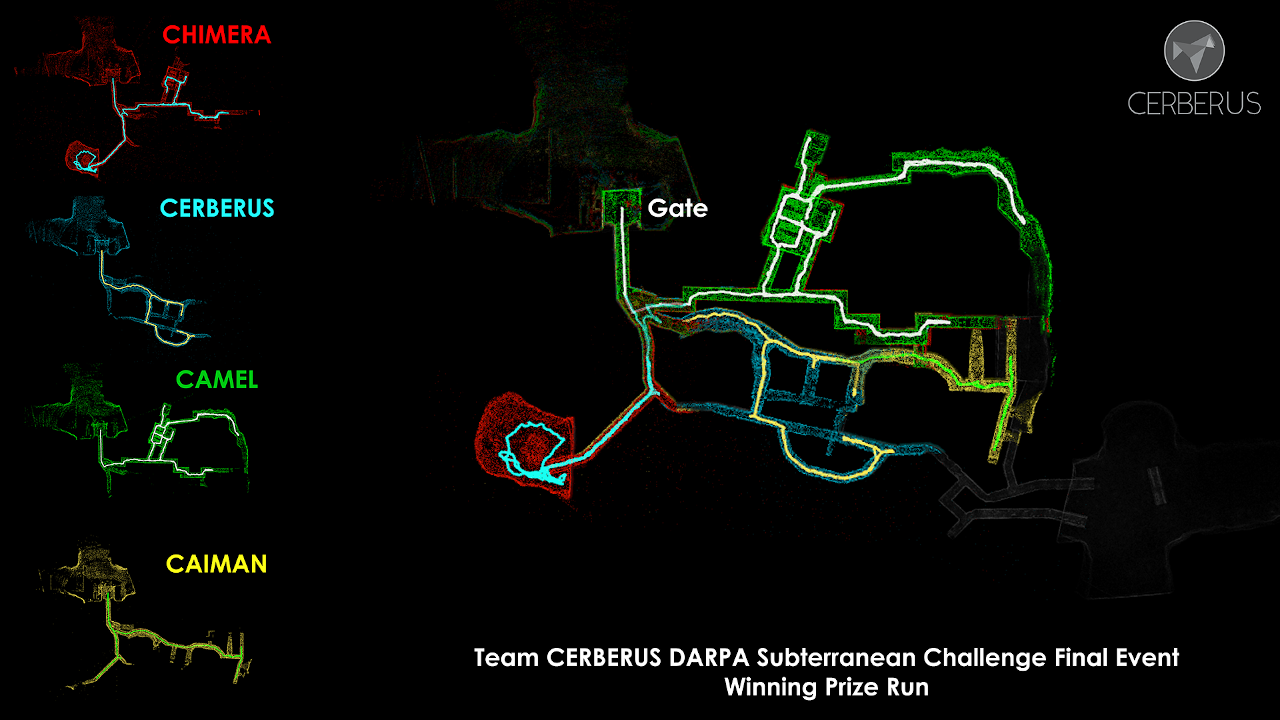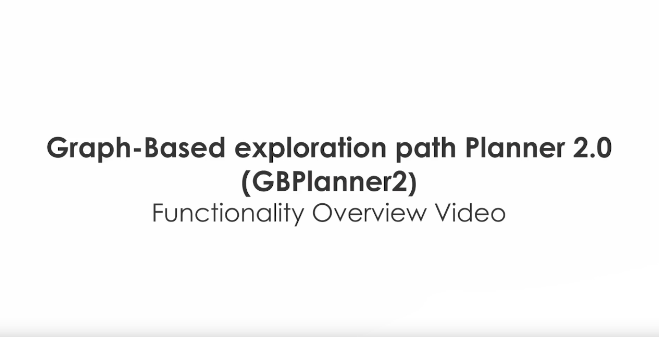Please refer to the wiki page for detailed instructions to install and run the demo simulations as well as documentation of the planner interface and parameters. More results and video explaination of our method can be found on our website: Link
These instructions assume that ROS desktop-full of the appropriate ROS distro is installed.
Install necessary libraries:
For Ubuntu 18.04 and ROS Melodic:
sudo apt install python-catkin-tools \
libgoogle-glog-dev \
ros-melodic-joy \
ros-melodic-twist-mux \
ros-melodic-interactive-marker-twist-server \
ros-melodic-octomap-rosFor Ubuntu 20.04 and ROS Noetic:
sudo apt install python3-catkin-tools \
libgoogle-glog-dev \
ros-noetic-joy \
ros-noetic-twist-mux \
ros-noetic-interactive-marker-twist-server \
ros-noetic-octomap-rosCreate the workspace:
mkdir -p gbplanner2_ws/src/exploration
cd gbplanner2_ws/src/explorationClone the planner
git clone https://github.com/boazvig/gbplanner_ros.git -b gbplanner2Clone and update the required packages:
cd <path/to/gbplanner2_ws>
wstool init
wstool merge ./src/exploration/gbplanner_ros/packages_ssh.rosinstall
wstool updateBuild:
catkin config -DCMAKE_BUILD_TYPE=Release (IMPORTANT DO NOT SKIP otherwise might error in linkage)
catkin buildDownload the gazebo model from here and extract in the ~/.gazebo/models folder.
roslaunch gbplanner rmf_sim.launchIt will take few moments to load the world. A message saying the spawn_rmf_obelix process has died may pop up, but as long as the pointcloud map is visible in rviz and the UI controls work this message can be safely ignored.
the following command:
roslaunch gbplanner smb_sim.launchIn Ubuntu 18.04 with ROS Melodic, the gazebo node might crash when running the ground robot simulation. In this case set the gpu parameter to false here.
Robot's of Team Cerberus running GBPlanner and GBPlanner2

Autonomous exploration mission in the Prize Round of the DARPA Subterranean Challenge Final Event using four ANYmal C legged robots (Chimera, Cerberus, Camel, Caiman), all running GBPlanner2 independantly.
If you use this work in your research, please cite the following publications:
Graph-based subterranean exploration path planning using aerial and legged robots
@article{dang2020graph,
title={Graph-based subterranean exploration path planning using aerial and legged robots},
author={Dang, Tung and Tranzatto, Marco and Khattak, Shehryar and Mascarich, Frank and Alexis, Kostas and Hutter, Marco},
journal={Journal of Field Robotics},
volume = {37},
number = {8},
pages = {1363-1388},
year={2020},
note={Wiley Online Library}
}
Autonomous Teamed Exploration of Subterranean Environments using Legged and Aerial Robots
@inproceedings{kulkarni2021autonomous,
title={Autonomous Teamed Exploration of Subterranean Environments using Legged and Aerial Robots},
author={Mihir Kulkarni and Mihir Dharmadhikari and Marco Tranzatto and Samuel Zimmermann and Victor Reijgwart and Paolo De Petris and Huan Nguyen and Nikhil Khedekar and Christos Papachristos and Lionel Ott and Roland Siegwart and Marco Hutter and Kostas Alexis},
year={2022},
booktitle={2022 IEEE International Conference on Robotics and Automation (ICRA)},
organization={IEEE},
address={Philadelphia (PA), USA}
}
You can contact us for any question:


